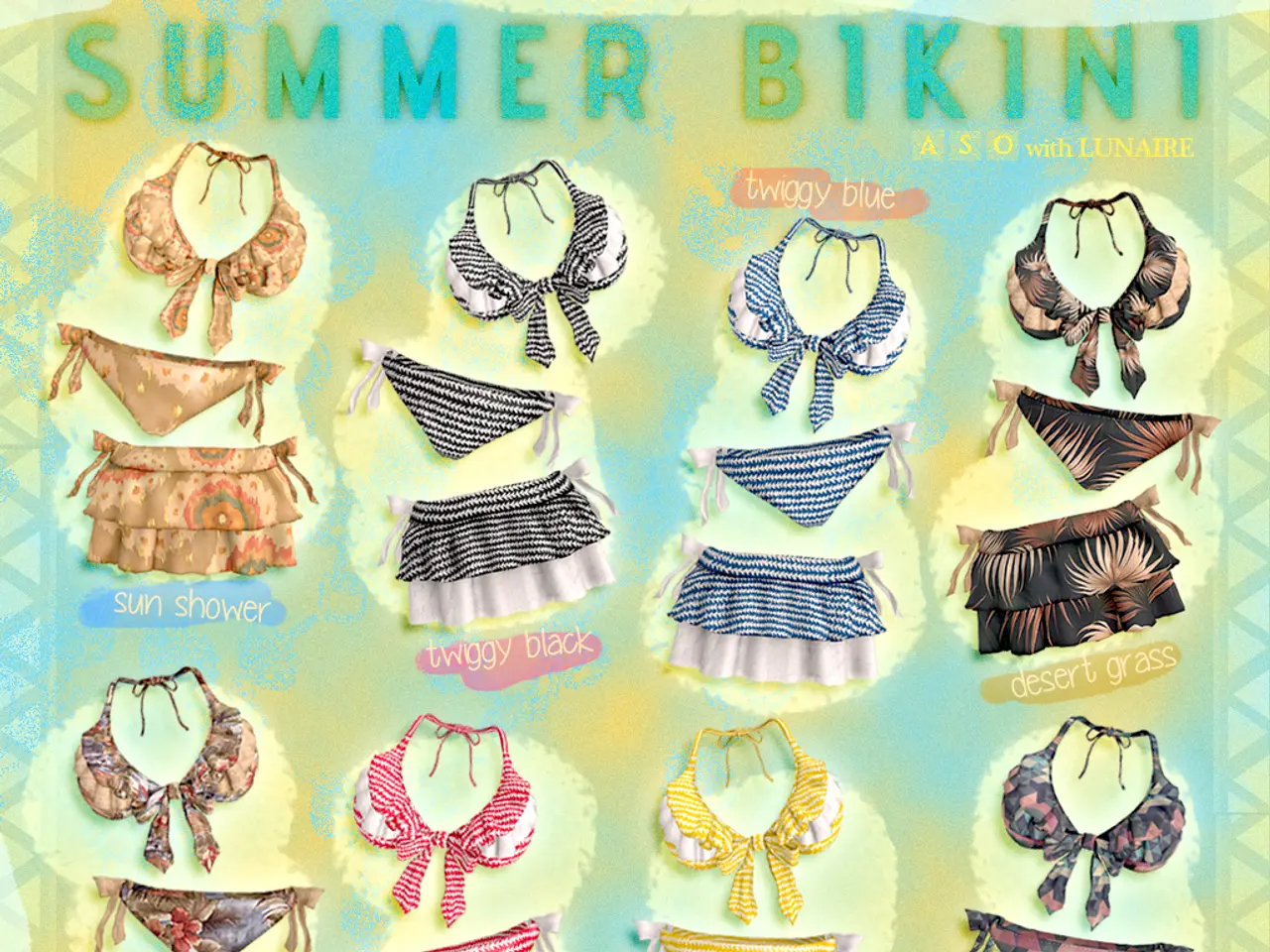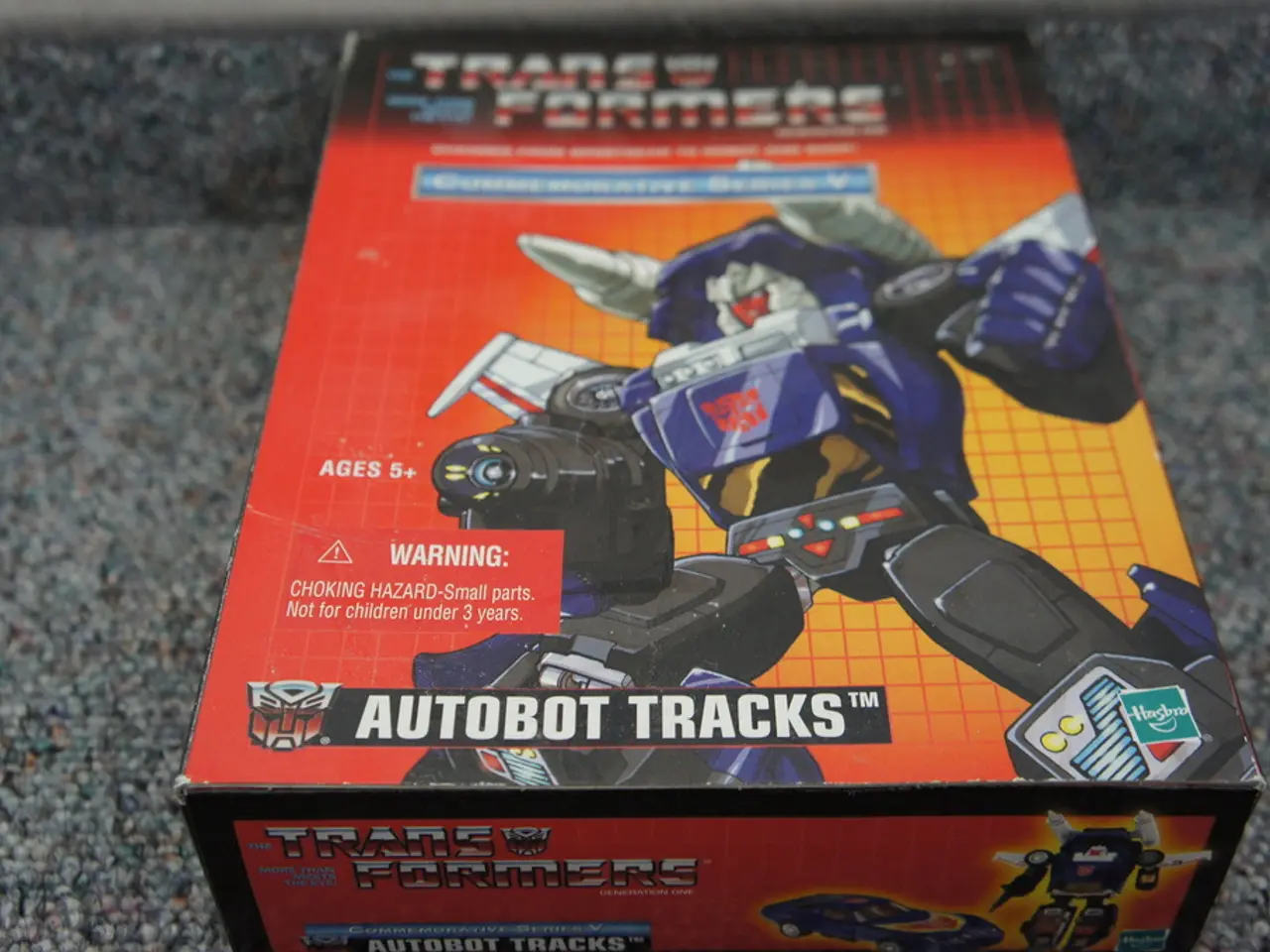"Internet Triumph in Korea's Fashion Scene": Success in Korean fashion lies in dominating the online world.
In the ever-evolving world of fashion, Korean casual styles are making a significant impact on leading e-commerce platforms like 29CM, Musinsa, ZigZag, and others. This year, these platforms are showcasing some key directions for 2025 that reflect a fusion of comfort and innovation.
One of the most noticeable trends is the **return of wide-leg pants**. Korean designers are emphasizing modern wide-leg silhouettes that offer freedom of movement while maintaining slim and clean proportions. Cargo pants are adopting a refined, minimalist utility look, with strategic, unobtrusive pockets rather than excessive detailing.
Another significant evolution is in **fashion sets and suits**, moving away from traditional business attire towards versatile, coordinated sets that can be worn both casually and formally. These sets often mix textures and unexpected color combinations, embodying innovation and functionality. Notably, denim is being integrated into formal styles, creating hybrid denim blazer sets and studded denim looks that challenge conventional norms about casual vs. formal wear.
The rise of **indie and niche brands** is also influencing Korean casual fashion. New domestic labels like Mango Many Please, Matin Kim, Avie Muah, and City Breeze are gaining popularity, replacing older established brands. These brands leverage social media and online platforms for marketing, pushing a younger, trend-conscious aesthetic that resonates with modern consumers. The success of fashion brands increasingly depends on mastering the platform algorithms alongside creativity.
The street style in Seoul remains a vibrant source of inspiration, with looks described as **cute, edgy, and Pinterest-ready**, blending colorful, casual outfits with unique styling that appeals to the digital generation.
Meanwhile, the online brand Avie muah has recently opened a store at the Hyundai Department Store's Pangyo branch. Additionally, a promotional event page for domestic designer labels is available on the fashion e-commerce platform ZigZag. 29CM, known as STYLESHARE, is a domestic fashion e-commerce platform and its best seller category includes contemporary designer labels based in Korea.
Lastly, fashion retail apps and indie brands are currently promoting a partnership, but further details about the nature of this partnership have yet to be disclosed.
In summary, Korean casual fashion on these platforms in 2025 is characterized by a fusion of comfort and innovation: wide-leg pants and tactical minimalism; versatile, texture-rich fashion sets merging casual and formal elements; the rise of fresh indie labels thriving via online curation; and a street style that is youthful, playful, yet sophisticated.
- The transformation in fashion culture extends beyond wide-leg pants and fashion sets, as the business of Korean casual fashion sees the rise of indie and niche brands like Mango Many Please, Matin Kim, Avie Muah, and City Breeze.
- In the international arena, South Korea's fashion industry is not only impacting leading e-commerce platforms, but also influencing politics and lifestyle choices, as the success of fashion brands increasingly depends on mastering platform algorithms alongside creativity.
- The fusion of comfort and innovation is evident not only in fashion trends, but also in the arts, as denim is being integrated into formal styles, creating hybrid denim blazer sets and studded denim looks that challenge conventional norms and redefine the intersection of fashion-and-beauty.
- As technology plays an increasingly significant role in marketing and sales, partnerships between fashion retail apps and indie brands are becoming more common, with app platforms like STYLESHARE (29CM) showcasing contemporary designer labels and emerging brands like Avie muah expanding into physical stores like the Hyundai Department Store's Pangyo branch.




